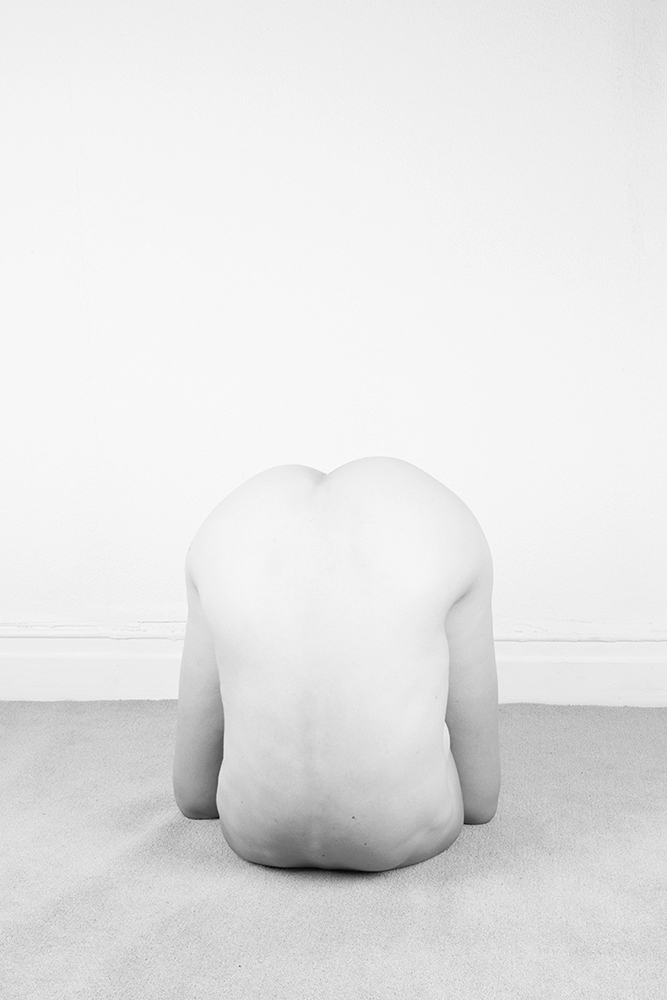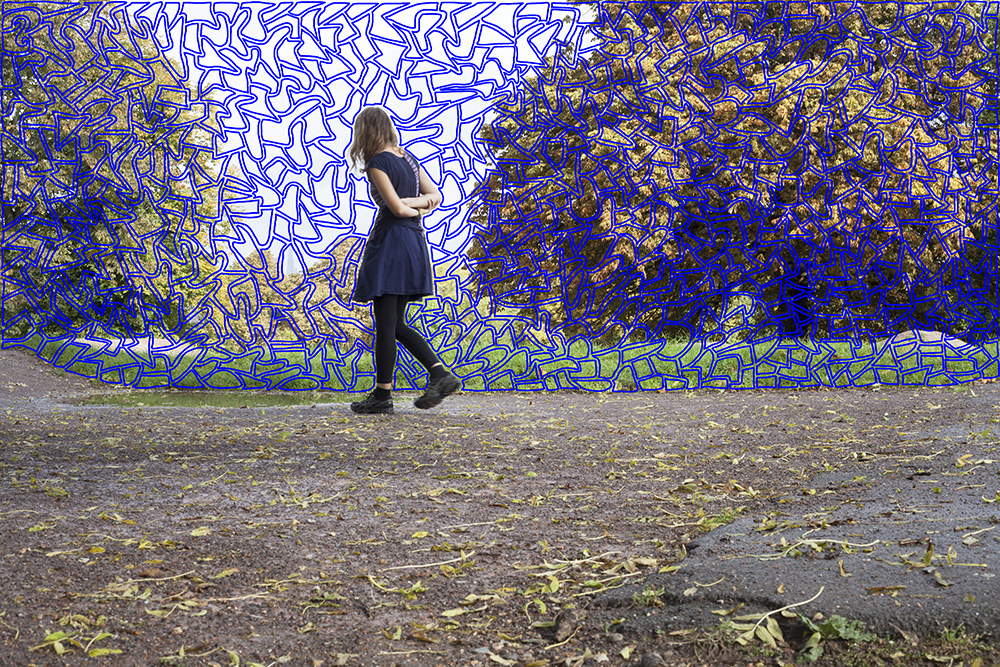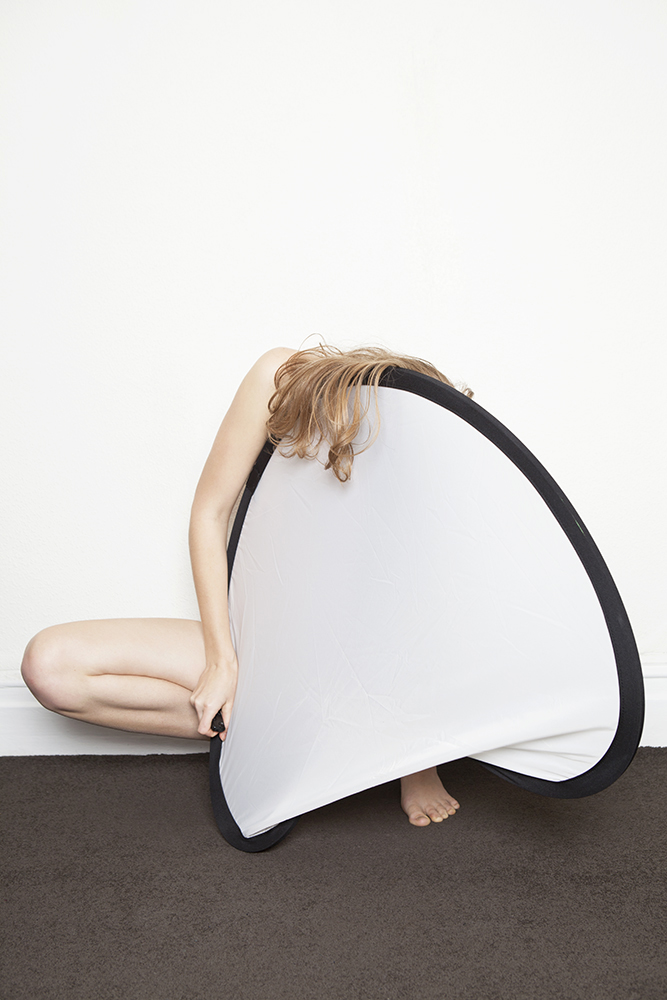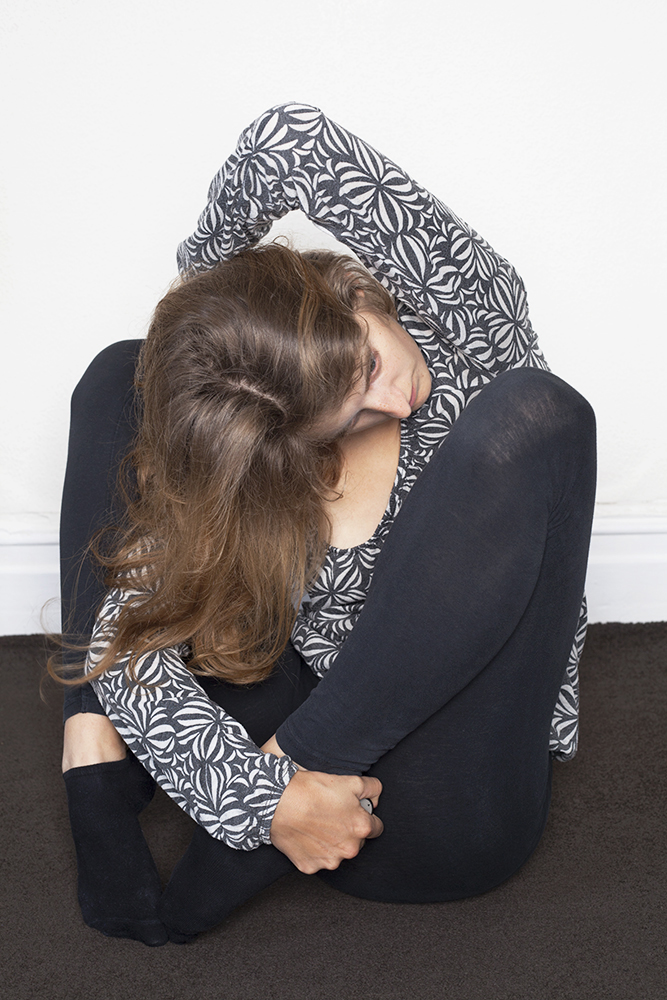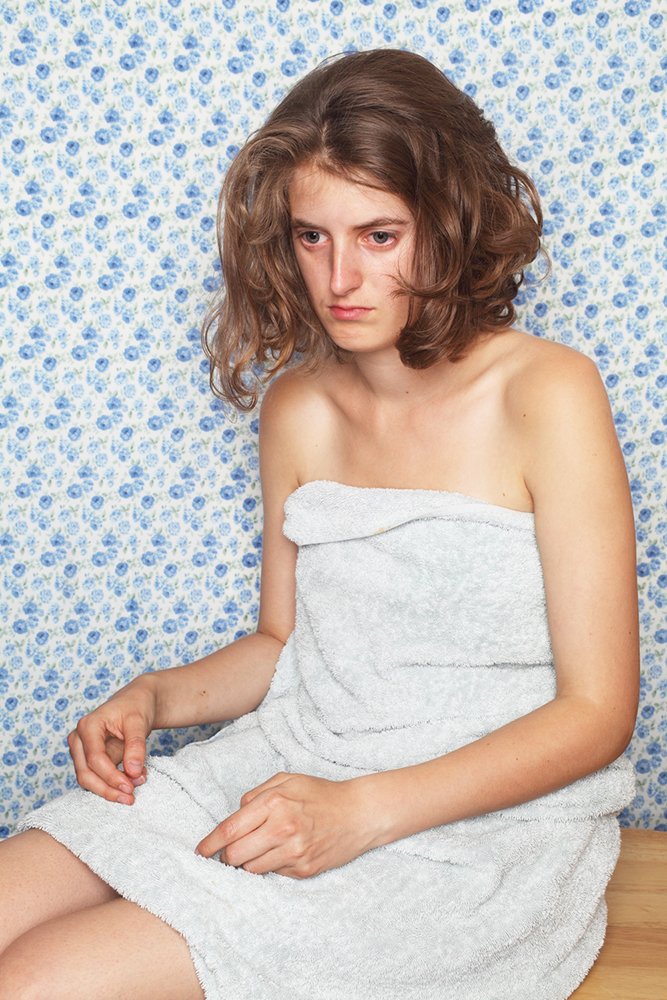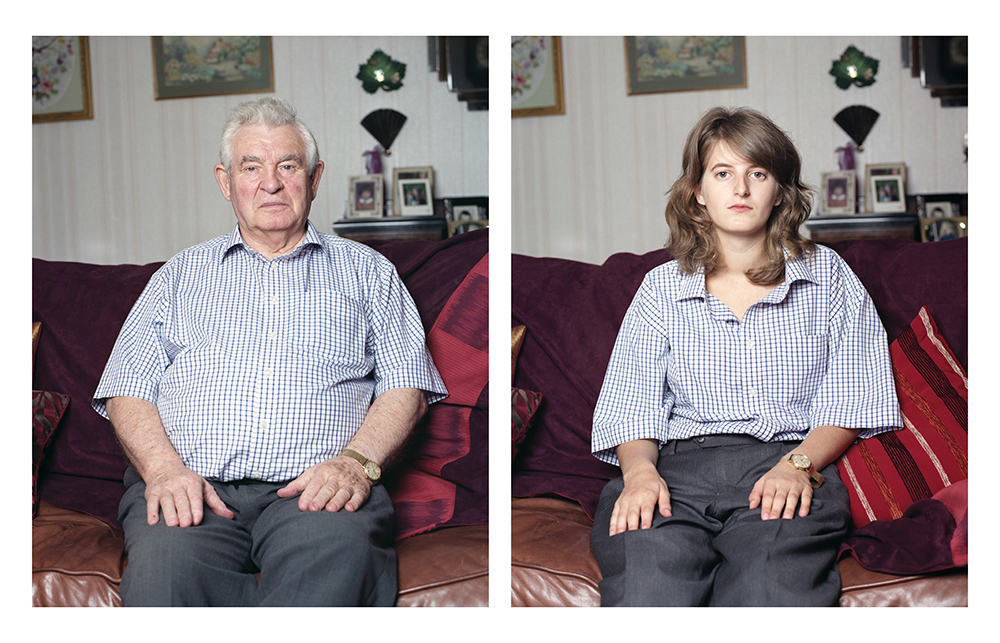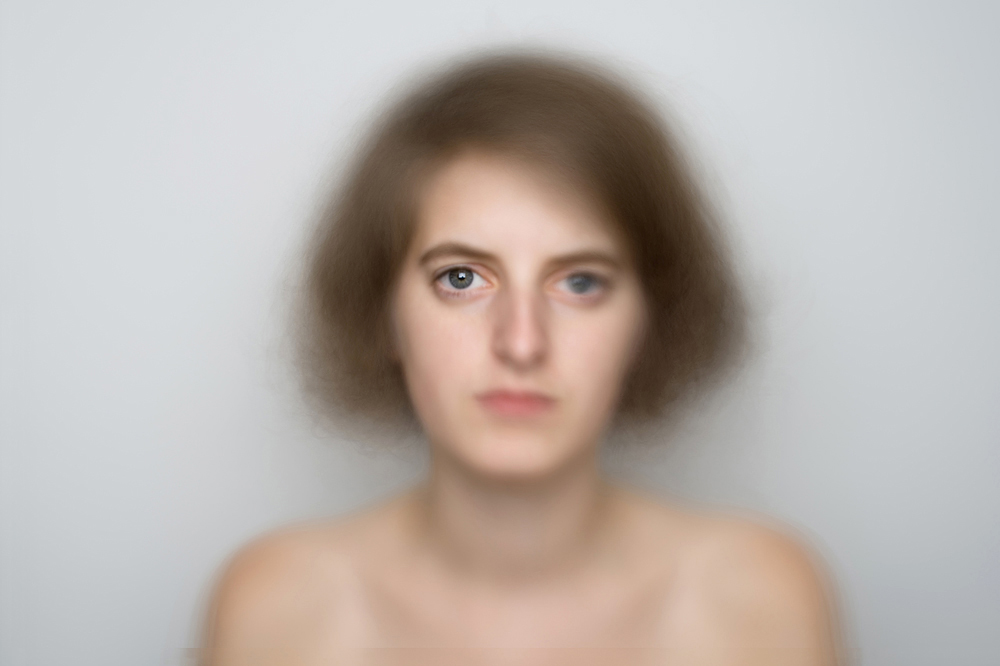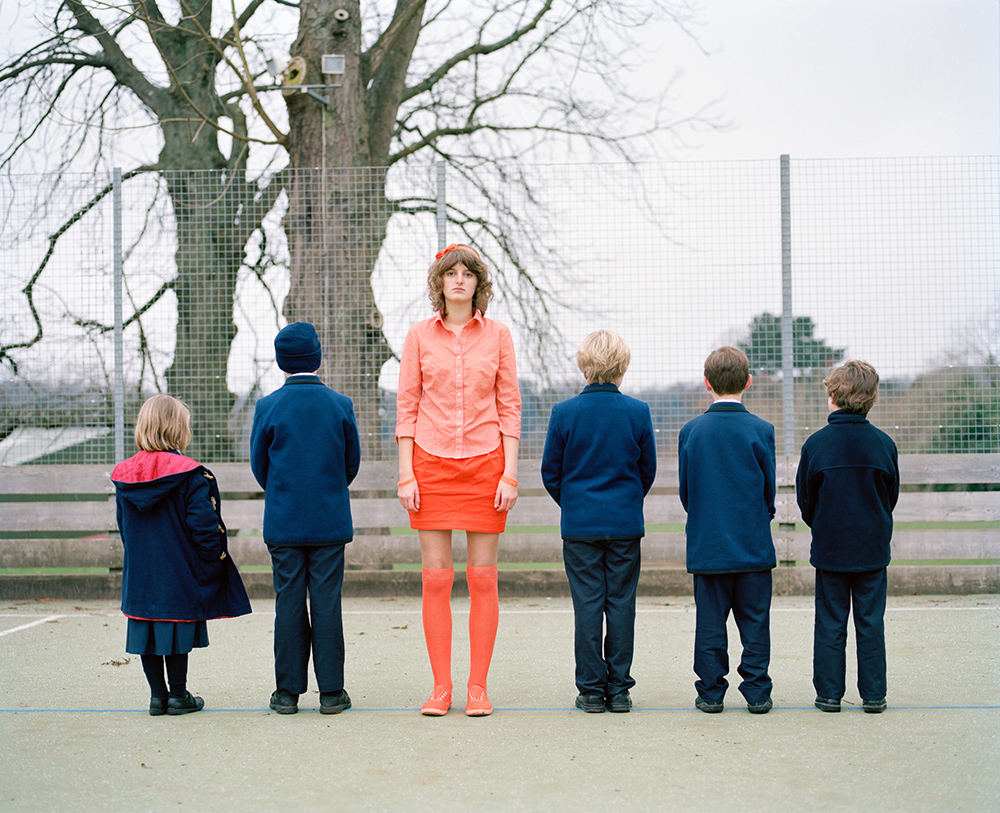Photographer, Jocelyn Allen, spoke to us about her practice, her feelings about self-portraiture, and what's next for her.
PW: Can you talk us through the process of how you came to photograph yourself? What attracted you to making yourself the subject of your work?
JA: My first self-portrait project, Reality of Youth Going Backwards in Vain was made in my last year of University. A lot of my projects had started out quite personal, but I felt uncomfortable and used to alter the meanings or change the projects entirely.

I’d initially planned to make something non-personal, but during my second year I went through a phase where all I could do was question the meaning of life and if I really existed. None of my friends had really understood it, so it was quite a lonely time for me.
I decided to make work about this, but originally had another friend as the main figure. A few people asked why I wasn’t using myself and in the end, it made sense as I didn’t have to rely on her to be available when I could work on it. I felt very awkward showing the pictures in class as I thought everyone would laugh at me and I didn’t particularly like seeing myself. Luckily the project got a good response though, as I’m not sure what work I’d be doing now otherwise…
I didn’t plan to keep photographing myself though. I thought every self-portrait project would be my last. At times, I deliberately made very different work, as I worried people would think I was a ‘one trick pony’. I told this to someone at a portfolio review and she asked me if I considered the self-portrait artists I liked at the time to be one trick ponies. I said no, so that relaxed my mind a little bit.

PW: Many photographers use an alter ego when creating work about themselves, amplifying the performative aspect of self-portraiture. Do you employ any strategies like this? Did you do anything to help ease any anxieties you may have had about performing for the camera?
JA: I don’t have an alter ego in any of my photographic work, though in One Is Not Like The Other I’m trying to be members of my family. However, I do have a pseudonym for a video project I’ve been making since 2013. It started off as me walking around wearing bright clothes with an animal hat, or a hat with lots of animal heads I made for a BA project and seeing how people reacted to me. It was in response to getting yelled at in the streets a lot for the clothes I used to wear when I was a teenager and a strange phobia of wearing hats I had because of what someone said to me when I was younger.

I had a hidden camera and some people were pretty rude to me, whereas others would just start conversations. I‘d have to really egg myself on to leave the house and once I got home I didn’t want to have to do it again for a while, so I thought what can I do that will get people to react to me whilst not having to leave my house … dance on YouTube? I only used a pseudonym as I didn’t want people to Google my name and just think I was an artist playing up to the camera. Although it’s a different name (Helena Teasdale) it’s me being me. There are currently over 1,100 videos and I’m still making them when I feel like it. It’s just an exercise in trying to let go and not worry what people think about me.
PW: Did self-portraiture help you gain confidence?
JA: Most of my photographic work goes between hiding and revealing. This was more evident to me in earlier projects. Reality of Youth Going Backwards in Vain felt like I was really revealing myself, so One Is Not Like The Other meant I could hide behind my family members. Then with The Many Faces of JFA I really felt awkward at the time about just showing my bare shoulders, so it felt revealing in that way, plus the individual images were often not very flattering as I was often taking them just after I had woken up. With Your Mind & Body Is All That You’ve Got parts I and II, I was working on another project that was very much about hiding myself. So I felt these projects were something I needed to do instead. Those projects really go between hiding and revealing for me, both mentally and physically.

I used to feel quite uncomfortable in front of the camera, especially for my first two projects, which involved other people watching. With the work I made outside, I probably bullied myself a bit and would be worrying from the night before about going out to shoot, but I just had to tell myself to do it, or there would be no project, and felt a bit better for having done it after.
For a lot of these projects I shoot so much and even the final edits are probably a bit too long, so there’s a lot people don’t see – the anxiety of worrying about the reaction to the final edit is a lot more than whilst I’m in front of the camera. Being in front of the camera is often quite relaxing and some projects have been very playful, so it’s been fun. Making the work is one thing and then choosing what to show is another. For Your Mind & Body Is All That You’ve Got II, I was actually a lot more worried about the diary entries accompanying the pictures than the pictures showing more flesh than I had before.

PW: Do you find yourself becoming aware of the audience for your work, while shooting and editing? I’d imagine this began as a private process, but once you know there are people engaging with the work on a critical level, did this have an impact on how you performed for the camera, both photographically and in the written content?
JA: The shooting not so much, as that bit is very much for myself. A lot of my work is therapeutic, so making the work is one part of it; having time to think about how I feel about myself and life and taking pictures I (hopefully) like. I can then choose what I show and what I don’t. So the editing process is influenced by the audience a bit. Especially with my Your Mind & Body Is All That You’ve Got work (2 projects and video) it was really about what I felt comfortable presenting.
Showing the work is the second part of the therapeutic process for me. I usually put my work straight onto the Internet, which as most of us know, isn’t usually the pleasantest place. I think more people comment on things if they’ve something negative to say. Most of my work from the last few years has been about anxiety and low self-esteem, caused by my skin not always being thick enough to counteract how people reacted to me when I was growing up. So presenting it to people who can say negative things about me and/or the work if they wish is an interesting experience – hence being part two.

My writing has been another process. My work has made me more comfortable with myself, of course I still have days that aren’t so great, but being more comfortable makes me more open with my writing and my reasons. I feel in the last year, the last 6 months especially, I’ve been more open about my real reasons for making things, but I think I’ve been more honest with myself too.
PW: You speak about acceptance of your own body image and using photography as a way to understand that process. What does photography allow you to see that you wouldn’t otherwise see?
JA: It just gives me the time to reflect on how I feel about things at my own pace (but at a faster one than without the photography/videos). It’s allowed me to vent about things to a point where I stopped feeling sorry for myself a long time ago and understand why others say and do horrible things to other people. I used to feel very guilty for making work about myself, but I’ve realised recently that good self-esteem affects your life and those around you a lot – people who are happy within themselves don’t feel the need to harm others (physically or mentally). I think this world would be a very different place if everyone had a healthy level of self-esteem.

High school (which really blew my confidence) is just a cycle of people making others feel bad, to make themselves feel better, because other people have made them feel bad – but it’s probably still true for a lot of people’s lives as they grow older. I definitely said some horrible things in high school that I’m not proud about.
Making my dance videos also encouraged me to look after myself better as I didn’t realise that I was so unfit. After going to a contemporary dance course briefly I ‘discovered’ lots of new back muscles I didn’t want to lose again, so I started to exercise regularly (I mainly do yoga and pilates now) and eat healthier which in turn made me feel better about myself.
I also think a mind like mine needs to be kept busy and luckily my art practice combined with the rest of my life does that.

PW: How do you know when a project is finished?
JA: There’s no big eureka moment, it’s usually just when I’ve a feeling it’s done. With Your Mind & Body Is All That You’ve Got parts I (2012) & II (2013), I just kept shooting and then I’d edit and put together the projects when I had time off at Christmas those years. With my most recent complete project Amalgamated Anomalies, it’s about knowing I should start to make take self-portraits outside, but I mentally couldn’t do it, so I let myself continue photographing inside as long as I could take pictures I hadn’t really taken before. It came to a natural end after I started to photograph myself outside for my work-in-progress project Neblina.

PW: Finally, what’s next for you?
JA: I’m currently finishing off Neblina and then I plan to revisit a project that I did a lot of work for in 2012, but stopped to give Your Mind & Body Is All That You’ve Got my full concentration. So we’ll see how that goes…
For more on Jocelyn’s work, click here.
For more on our Ideas Series articles, click here.
